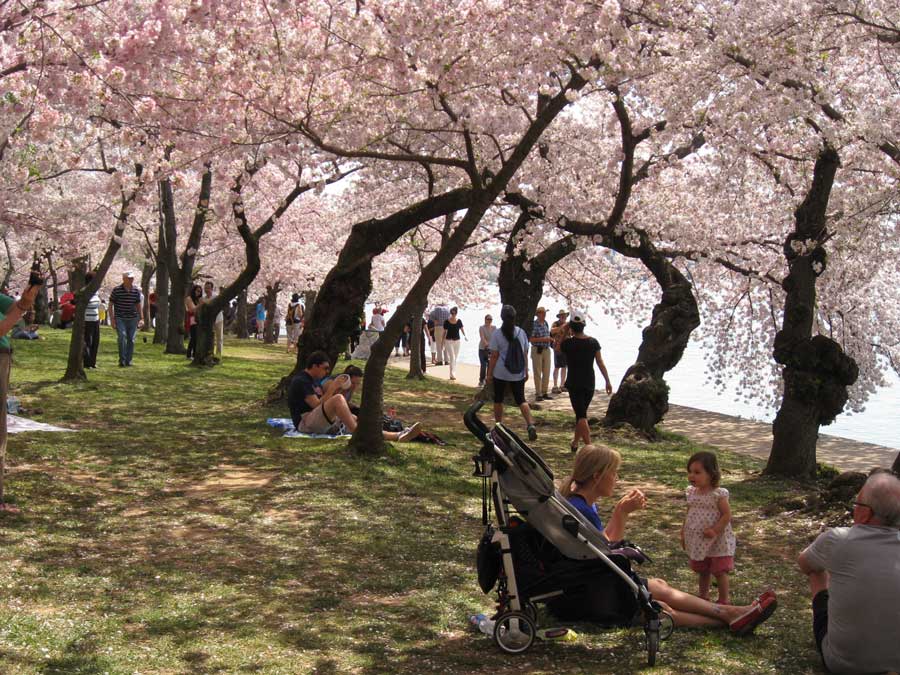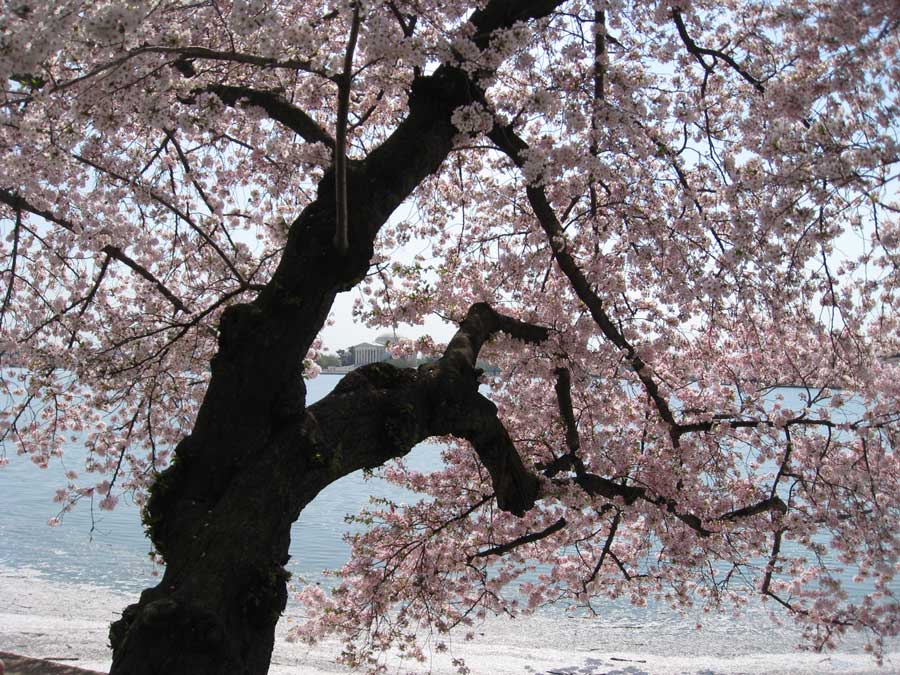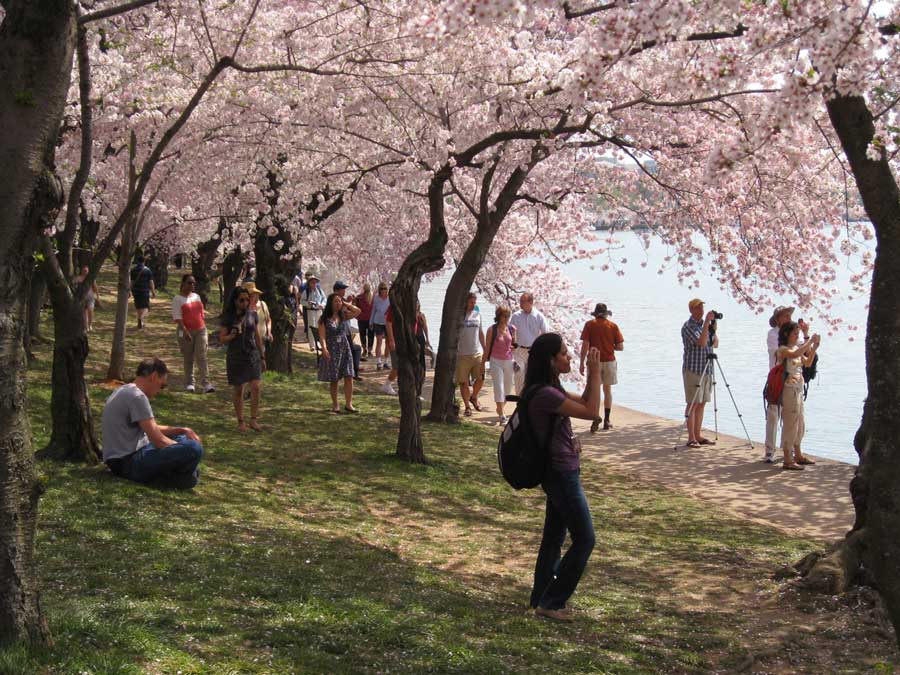
Last week we planned to take a peek at the peak of the pink down at the National Cherry Blossom Festival.
We set off after dinner, figuring that the crowds would be diminished at the end of the day, on what had been widely predicted to be one of the last best days for viewing, since a petal-smashing storm front was expected by the end of the week.
When I was growing up in Falls Church, Virginia, the Cherry Blossom Festival was a minor blip on the D.C. social calendar. The marketing machine hadn’t yet sunk its teeth into the event. There was little publicity, no posters, no T-shirts, and no city-wide campaign to lure tourists from across the nation. The general attitude seemed to be that the city had enough tourists as it was. The Cherry Blossom Festival was a little hometown event.
Not anymore.
As we inched through the strangled traffic heading anywhere close to the Tidal Basin, we heard on the radio that the Nationals’ game was experiencing a delay because the umpires were stuck in traffic. The announcers, forced to adlib for an unexpected fifteen minutes, seemed to find it hard to believe that the traffic could be that bad. Trust me. It was.
So bad, in fact that we punted on the expedition after we arrived at the intersection leading to the shuttle parking and discovered that both lanes were blocked by a broken down shuttle bus.
It might seem odd that a city famous for its power players and political agendas can lose its head over a few hundred blossoming trees. And yet, there it is. It’s a pink thing.

I went back the next morning on the metro, determined to get my pink on. The soft sunlight filtered through the fluttering trees cast a glow on every face. People of all ages ambled around snapping photos and smiling like children at a lavish birthday party.
There’s a lot of history behind the National Cherry Blossom Festival, which celebrated its 100th anniversary last year. Those with an interest in history may see it through that lens. But for most of us, it’s enough to see it in all its fragile, fleeting glory, a living poem that blooms and then disappears overnight.
